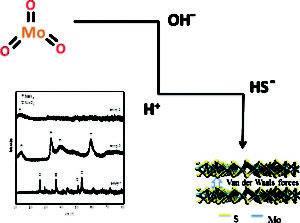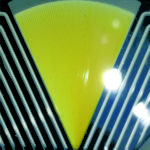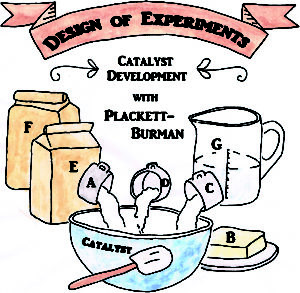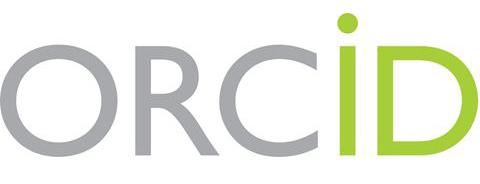As part of International Women’s Day, we would like to take the opportunity to celebrate research led by women and published in Reaction Chemistry & Engineering. With a big thank you to these researchers, and to all women that have contributed to work published in the journal, we encourage you to read their excellent work!
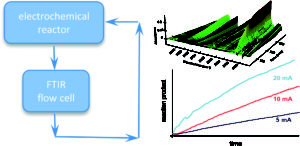 In situ FTIR spectroscopic monitoring of electrochemically controlled organic reactions in a recycle reactor
In situ FTIR spectroscopic monitoring of electrochemically controlled organic reactions in a recycle reactor
Alexander G. O’Brien, Oana R. Luca, Phil S. Baran and Donna G. Blackmond
React. Chem. Eng., 2016, 1, 90-95
DOI: 10.1039/C5RE00050E
An electrochemical reactor coupled with a recycle loop through a transmission FTIR cell allows continuous monitoring of reaction progress.
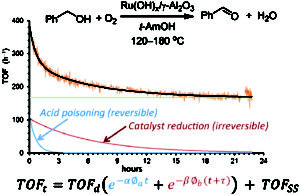 Catalysis in flow: O2 effect on the catalytic activity of Ru(OH)x/γ-Al2O3 during the aerobic oxidation of an alcohol
Catalysis in flow: O2 effect on the catalytic activity of Ru(OH)x/γ-Al2O3 during the aerobic oxidation of an alcohol
John B. Brazier, Klaus Hellgardt and King Kuok (Mimi) Hii
React. Chem. Eng., 2017, 2, 60-67
DOI: 10.1039/C6RE00208K
Different roles of O2 in the Ru-catalysed aerobic oxidation of alcohols have been delineated.
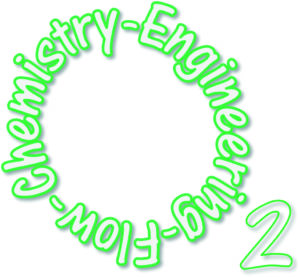 Aerobic oxidations in flow: opportunities for the fine chemicals and pharmaceuticals industries
Aerobic oxidations in flow: opportunities for the fine chemicals and pharmaceuticals industries
Asterios Gavriilidis, Achilleas Constantinou, Klaus Hellgardt, King Kuok (Mimi) Hii, Graham J. Hutchings, Gemma L. Brett, Simon Kuhn and Stephen P. Marsden
React. Chem. Eng., 2016, 1, 595-612
DOI: 10.1039/C6RE00155F
This collaborative review (between teams of chemists and chemical engineers) describes the current scientific and operational hurdles that prevent the utilisation of aerobic oxidation reactions for the production of speciality chemicals and active pharmaceutical ingredients (APIs).
Synthesis of narrow sized silver nanoparticles in the absence of capping ligands in helical 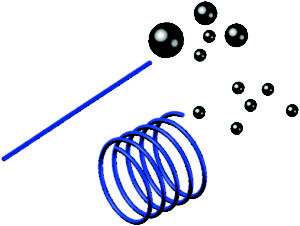
microreactors
Ke-Jun Wu, Geoffroy Michet De Varine Bohan and Laura Torrente-Murciano
React. Chem. Eng., 2017, Advance Article
DOI: 10.1039/C6RE00202A
From themed collection Reaction Chemistry & Engineering Emerging Investigators
Microtubular helical reactors generate secondary flows promoting the synthesis of mono-sized silver nanoparticles in the absence of capping ligands.
Application of microfluidics to control product selectivity during non-catalytic oxidation of 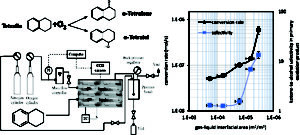
naphthenic-aromatic hydrocarbons
M. N. Siddiquee, A. de Klerk and N. Nazemifard
React. Chem. Eng., 2016, 1, 418-435
DOI: 10.1039/C6RE00010J
Liquid phase oxidation of naphthenic-aromatic hydrocarbons in slug-flow reactor shows high selectivity, arising from the ability to control local oxygen availability in miniaturized reactors.
The catalytic activity and chemical structure of nano MoS2 synthesized in a controlled environment
H. P. Zhang, H. F. Lin, Y. Zheng, Y. F. Hu and A. MacLennan
React. Chem. Eng., 2016, 1, 165-175
DOI: 10.1039/C5RE00046G
From themed collection Celebrating 175 years of the Royal Society of Chemistry
The redox synthesis mechanism is, for the first time, revealed in a novel hydrothermal preparation of nano MoS2 with MoO3 as precursors. The S-to-Mo ratio plays a key role in influencing the morphology and activity of catalyst MoS2.
Decay kinetics of sensitive bioinorganic species in a SuperFocus mixer at ambient conditions
Daniela Schurr, Florian Strassl, Patricia Liebhäuser, Günter Rinke, Roland Dittmeyer and Sonja Herres-Pawlis
React. Chem. Eng., 2016, 1, 485-493
DOI: 10.1039/C6RE00119J
For the first time the formation and decay of the thermally very sensitive bis(μ-oxo)dicopper species was monitored at ambient temperature in a continuous flow setup and the rate constant of the decay was measured.
Methanation of residual syngas after LPG synthesis: identifying the main effects on catalytic performance with Plackett–Burman screening design
Florian Krebs, Vitaliy Bliznuk, Joon Hyun Baik, Regina Palkovits and Kalin Simeonov
React. Chem. Eng., 2016, 1, 477-484
DOI: 10.1039/C6RE00071A
Seven factors in catalyst development were selected and rated towards their impact on methanation as a downstream process.
Development of a reactor with carbon catalysts for modular-scale, low-cost electrochemical generation of H2O2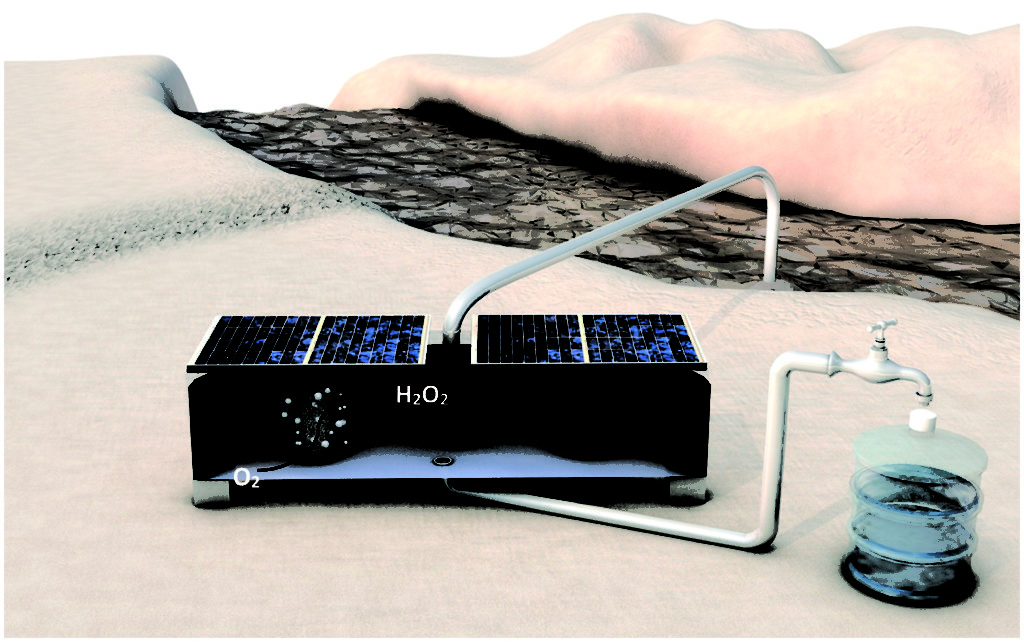
Zhihua Chen, Shucheng Chen, Samira Siahrostami, Pongkarn Chakthranont, Christopher Hahn, Dennis Nordlund, Sokaras Dimosthenis, Jens K. Nørskov, Zhenan Bao and Thomas F. Jaramillo
React. Chem. Eng., 2017, Advance Article
DOI: 10.1039/C6RE00195E
From themed collection Reaction Chemistry & Engineering Emerging Investigators
Small-scale reactors for H2O2 production that can couple to renewable energy sources would be of great benefit for decentralized water purification.
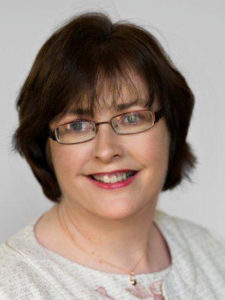











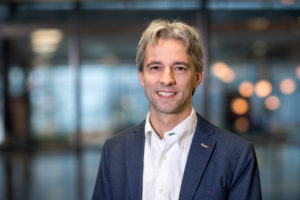

 In situ FTIR spectroscopic monitoring of electrochemically controlled organic reactions in a recycle reactor
In situ FTIR spectroscopic monitoring of electrochemically controlled organic reactions in a recycle reactor Catalysis in flow: O2 effect on the catalytic activity of Ru(OH)x/γ-Al2O3 during the aerobic oxidation of an alcohol
Catalysis in flow: O2 effect on the catalytic activity of Ru(OH)x/γ-Al2O3 during the aerobic oxidation of an alcohol Aerobic oxidations in flow: opportunities for the fine chemicals and pharmaceuticals industries
Aerobic oxidations in flow: opportunities for the fine chemicals and pharmaceuticals industries

